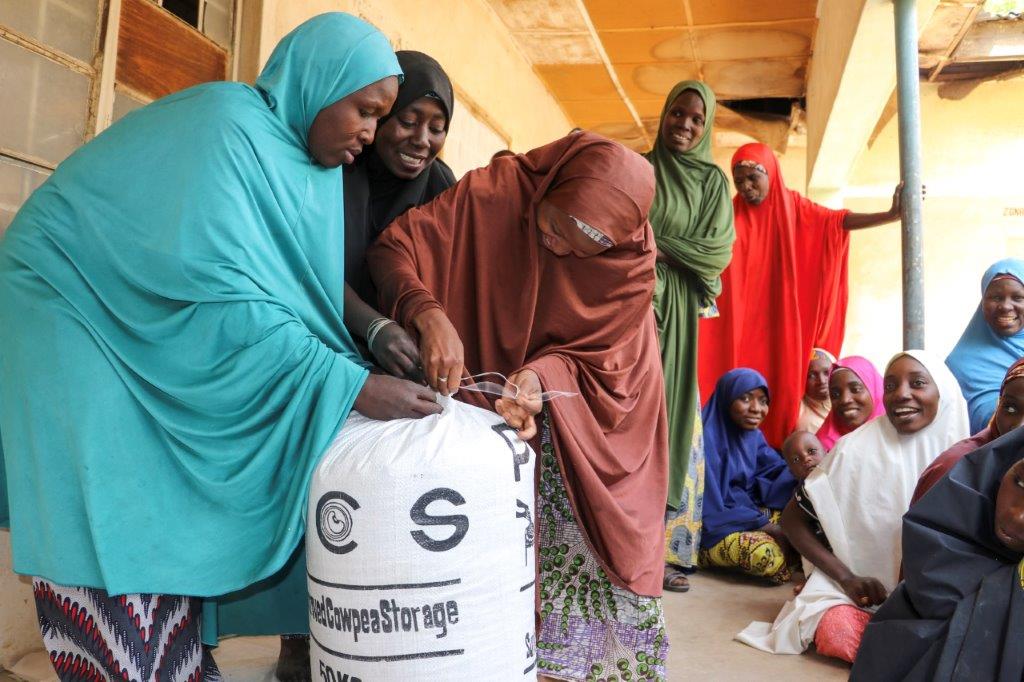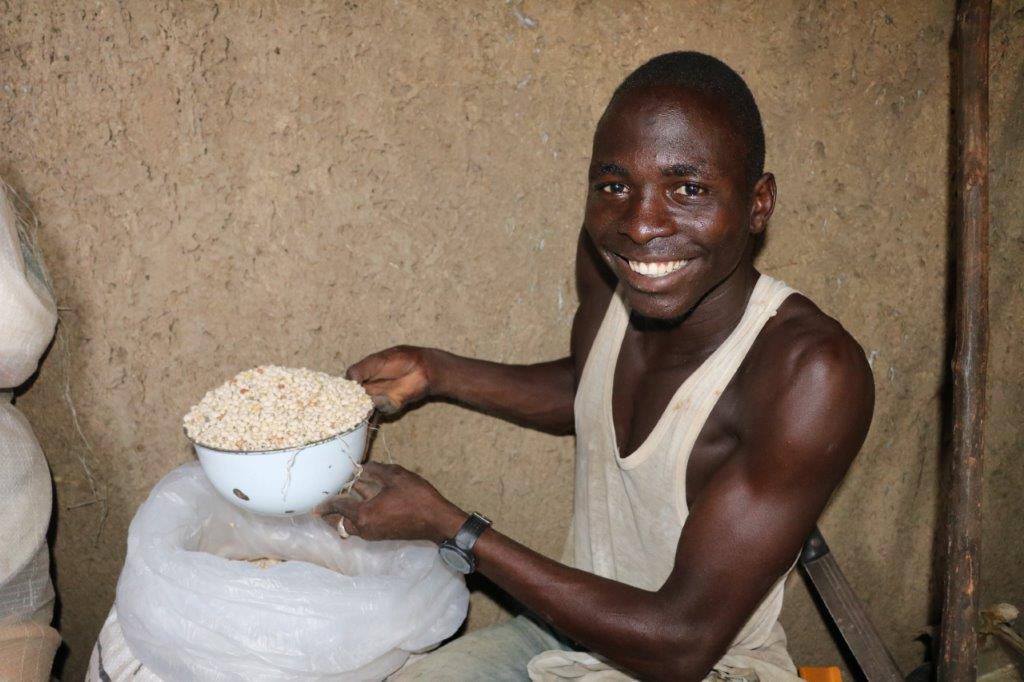Can bags send children back to school? Yes, these hermetic storage bags can, when well used by enlightened farmers, and this is what the World Food Programme (WFP) is doing in Yobe state.
How? Good question. A training carried out by the United Nations World Food Programme (WFP) in Yobe State, north-east Nigeria, has improved methods of food storage after the harvest season in the region.
According to figures by the Nigerian Incentive-Based Risk Sharing System for Agricultural Lending (NIRSAL), Nigeria loses some US$9 billion every year due to poor post-harvest management.
More than 30 percent of staple food grains (maize, sorghum, millet) are lost due to poor storage, while 60 percent of vegetables perish.
Advertisement
This can be reduced, and the proceeds can be used in paying school fees and getting children back to school in any area of the country.
WFP, in collaboration with the Agricultural Development Project (ADP) and the International Institute for Tropical Agriculture (IITA), trained 300 farmers on post-harvest best practices – using hermetic storage technology.
Hermetic storage bags are airtight and waterproof, allowing farmers to store and save grains from infestations or destruction by insects, rodents, mould, and moisture, thus preserving them for long periods of time.
Advertisement
A bag-opening ceremony on 10 July 2019 in Gashua, Yobe State, marked the highpoint of the training which aimed to reduce the losses suffered by farmers due to improper food storage.
After the training, each of the farmers received eight specially made airtight 50KG bags to store their grains for six months until the prices of grains rose in the market.

The farmers stored cowpeas in the new airtight bags, while others stored theirs in traditional ways.
“When the bags were opened in Gashua, the results were astonishing,” says Eden Guizaw, the WFP officer leading the Post-Harvest Loss Management Programme.
Advertisement
“Ninety percent of the grains stored in the traditional way were lost, while 100 percent of those stored in the hermetic (airtight) bags were intact. It was amazing; indeed, beyond my imagination”.
Hajia Taannabi, one of the farmers, recorded a huge profit in her sales by using the hermetic storage bags to preserve her grains.
“I stored my grain with the hermetic bags, without losing any to infestation or rodents. I sold each mudu (measure for grains) for N400 and gained N300 on each mudu and was able to feed my family and pay my children’s school fees,” she said.
Building on the success of the pilot project, WFP will train more farmers nationwide in the use of the hermetic storage technology in the next phase of the programme – depending on the availability of funds.
Advertisement
“Investments in this type of training and technology are critical to making progress in reducing food insecurity over time,” Sarah Longford, acting country director for WFP Nigeria, said.
WFP is also encouraging local businesses by supporting the production in Nigeria of the hermetic storage bags by some Nigerian private enterprises.
Advertisement
By promoting hermetic storage in Nigeria, WFP aims to contribute to post-harvest loss reduction and boost food security to achieve zero hunger.
Advertisement
Add a comment







